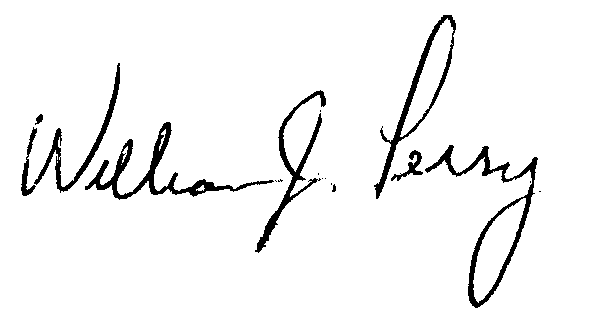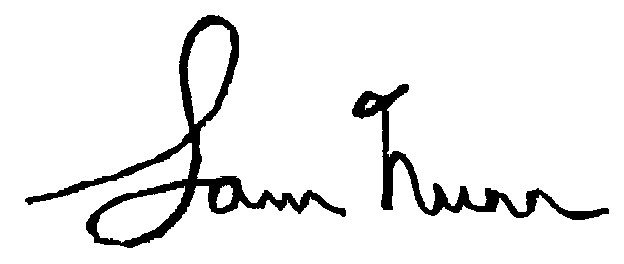
ARLINGTON, VA. -- U.S. policy towards China should be significantly revamped to take account of new realities, four of America's leading defense strategists agreed today.
In a joint statement issued by the Committee for the Common Defense, a research program of the Alexis de Tocqueville Institution, former defense secretaries Casper Weinberger and William Perry, former Senate and Pentagon aide Richard Perle, and former Senator Sam Nunn suggested several policy actions in light of a recentcongressional report on Chinese activities in the U.S., and on Chinese actions around the world. Among them --
Greater focus for U.S. export controls.
This may, paradoxically, mean a loosening of controls on some items (such as commercially available computers and encryption technology) to permit a concentrated effort to restrict Chinese purchase and theft of truly sensitive military technologies.
Deployment of a strategic defense.
The statement marks the first time that leading members of both parties have encouraged strategic defense as an important measure for responding to Chinese armament programs and Appointment of a "B-Team" for China policy. The team would be a bipartisan effort similar to the 1983 Kissinger Commission for Central America Policy, or the 1970s review of Soviet military capabilities. It should assess U.S. diplomatic, economic, intelligence and military leverage to promote democratic evolution in China and a restrained foreign policy including economic and public diplomacy programs.
"We are pleased to have taken part in this important effort by four American statesmen to bring coherence to U.S. China policy," commented Alexis de Tocqueville Institution chairman Gregory Fossedal. "The policies recommended, unlike so many these days, are vigorous, and take serious account of the Chinese challenge -- yet they are moderate and incremental in nature."
Fossedal said members of the group began discussing the need for such changes following a dinner the Tocqueville Institution held with Congressman Chris Cox just prior to the release of the Cox Committee report. Cox and the participants had agreed that without "policy follow-through," as Fossedal put it, the report might "lack traction."
Since then the Tocqueville Institution, a public-interest research group, has been working with Cox and others to discuss the report's implications.
"What you had with the Cox report was a very rare thing," as former Senator Robert Kasten, a member of Tocqueville's board of directors, said, "namely, a congressional investigation that was truly bipartisan and which actually said something."
“Now we have the next step, which is for serious people from both parties to come together and agree on certain difficult changes that have to be made in our China policy.”
Statement on:
U.S.-China Policy
As the work of Christopher Cox and the Select Committee makes clear, the U.S.-China relationship is entering a period of increased tension and instability. While it would be premature to make final recommendations on these matters, we believe the facts as already known and the information contained in the declassified version of the Cox Report strongly suggest certain new directions for U.S. policy.
1. Reform U.S. technology-security policy for exports.
U.S. export control policy needs to do a far better job of focusing its resources to control militarily-sensitive technologies and products. At present, U.S. policy tries to restrict a wide range of technologies, and does poorly.
Many U.S. export limits, such as those on commercially available business computers or encryption software, are out of date. Furthermore, as Mr. Cox has noted, some of these technologies arguably do more to help secure freedom for individuals from the regime in Beijing than they do to provide capabilities to the Chinese arms industry.
2. Build cooperative institutions.
The administration and Congress should vigorously pursue the possibilities for cooperative efforts to limit sensitive technology leaks with our democratic allies and with private industry. Both have indicated a willingness to collaborate in such matters.
3. Reform U.S. technology-security policies for military procurement.
Ultimately, the United States will maintain its technological superiority both by refusing to give sensitive military technologies to some countries, and by moving ahead itself at full speed, making maximum use of the inherent advantages of its free and open society in generating new defense technologies. Yet some U.S. weapons systems are built on technologies that are ten or more years obsolete when first used. And some key technologies, such as those for immediate and future deployment of ballistic missile defenses, have yet to be deployed. We recommend a streamlining of the procurement process for cutting-edge technologies, and timely deployment of defenses against ballistic missiles as suggested by Secretary Rumsfeld and others.
Clearly, China now poses challenges -- and opportunities - that are cross-disciplinary in nature and complicated politically. We recommend that Congress and the Administration establish a "B" Team including leaders from high technology industries, Congress, and recent administrations to review, not so much the military threat, as was the case with Russia in the 1970s, but U.S. policy options and actions toward China. The team should insure that maximum use is made of the diplomatic, economic, intelligence and military capabilities the U.S. has at its disposal.
We will be happy to work with the Administration and the Congress on these important endeavors.
 |
|

|
| William Perry |
|
Caspar Weinberger
|
 |
|

|
| Richard Perle |
|
Sam Nunn
|
|
|
|
|

